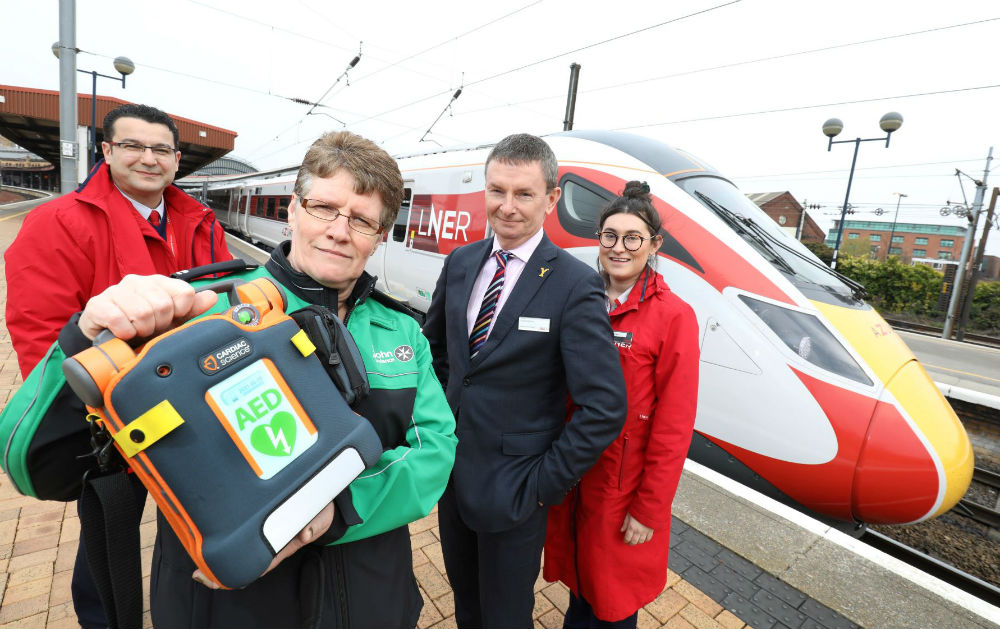A TRAIN company is investing more than £100,000 in lifesaving equipment and training for staff to provide greater cardiac support for customers.
Over the last 12 months, London North Eastern Railway have overseen the installation of 135 Automated External Defibrillators (AEDs) on-board their trains and at stations along their route.
This includes both their new Azuma trains as well as the legacy fleet.
Every year around 60,000 people have a cardiac arrest outside of the confines of a hospital and fewer than two per cent of victims have an AED deployed before the ambulance arrives.
Defibrillation within three to five minutes of collapse can produce survival rates as high as 50–70%.

Cunningham, LNER Head of North Region, Frankie Lewis, LNER York Station Team.
This can be achieved through giving the public better access to defibrillators, when a bystander uses a nearby AED to deliver the first shock.
The commitment by LNER, alongside the investment in new equipment, has led to a nomination in the Workplace category at the St John Ambulance Everyday Heroes awards which take place on the 7th October 2019 in London.
Warrick Dent, Safety and Operations Director at LNER, said: “Every minute counts in the rail industry, but every second counts when it comes to saving a life.
“When a cardiac arrest occurs on a train, it can take a while to get back to a station for the ambulance service to assist.
“Investing in the installation of AEDs on our trains will give casualties the best chances of survival.”
The life-saving machines were bought from St John Ambulance, which also gave training to 50 LNER managers on how to use them.
They have then gone on to cascade the training to 2,000 of their colleagues.
Mel Fox, Director of Training and Enterprise at St John Ambulance, said: “LNER is highly deserving of a place in the finals of our Everyday Heroes awards, which not only celebrate individuals who step forward to save others but also organisations that support the health and resilience of our communities.
“People can travel with LNER safe in the knowledge that if the worst happens and someone should suffer a cardiac arrest on board, they’ll be given the best first aid.”
As the rollout of new Azuma trains gathers pace, the AEDs will be transferred across from the legacy fleet as they’re taken out of service.
